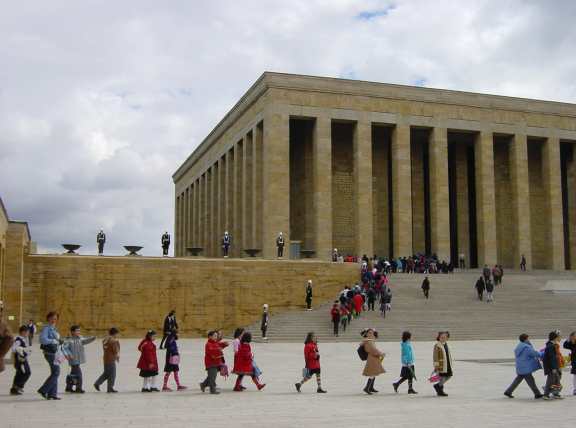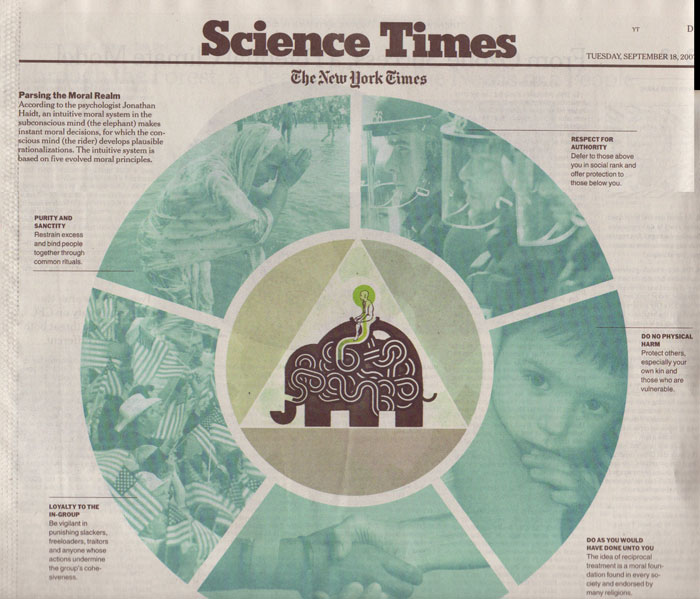Response Papers: Week 3. State: a ghost in the archaeological record
"The room (in the Central Registry of Births, Marriages and Deaths) is arranged, naturally enough, according to a hierarchy, but since, as one would expect, it is harmonious from that point of view, it is also harmonious from the geometrical point of view, which just goes to show that there is no insurmountable contradiction between aesthetics and authority."
José Saramago, Todos os Nomes (All the Names)

Thingness of the state: Mustafa Kemal Ataturk's Mausoleum in Ankara Image Source.
- Aesthetics and authority. Not a contradiction but a great deal of parallelism I think- or some hidden link that needs to be uncovered. Especially one thinks of the instrumentalization of pictorial representations, monumental texts, public structures, landscapes and social events to give the state its material presence, its "thingness". Can aesthetics be an ideological state apparatus? OK, we are getting ahead of ourselves in this class. Bernbeck writes that "ideologies can only be analyzed if basic meanings of symbols and representations are known" (540), probably referring to his and Susan Pollock's work on
 gendered ideologies in Uruk Mesopotamia. But isn't this based on the assumption that symbols and representations have identifiable and stable semantic meanings?
gendered ideologies in Uruk Mesopotamia. But isn't this based on the assumption that symbols and representations have identifiable and stable semantic meanings?
"To endeavor to think the state is to take the risk of taking over (or being taken over by) a thought of the state, that is, of applying to the state categories of thought produced and guaranteed by the state and hence to misrecognize its most profound truth."
Pierre Bourdieu, "Rethinking the State" in State/culture (1999:53). Quoted in Routledge 2004: 1.
- What are your thoughts on Bernbeck's choice of political economy, ideology and agency as new paradigms in archaeology in approaching the problem of state? Is it representative of the current status of the discipline? What would you bring in?
- Historical narratives (of modern academic imagination), as Routledge puts it, give solidity to states as historical entities: there the state is invoked as a "thing" or an "agency" (6-7). Does the state materialize then in this historigraphic operation, precisely when it is so elusive in the archaeological record?
- Routledge's discussion of the critical theories/geneaologies of the state singles out a fascinating discussion on the ontological status of the state: does it really exist? (esp. under "Governmentality"). Governmentality appears here as a crucial concept that sets a balance among these theories of structure and agency, state as a unitary entity vs. state as an illusory facade. I personally found Routledge's alignment with seeing the state as a real entity ("a structuration that arises in political practice but it is not merely an illusory account of that practice" (18), and that the state operates through historically specific practices, discourses and performances as well as techniques of government, its apparatuses; and that its "thingness" and agency, its apparent unity and coherence is the effect (Timothy Mitchell's "state effect") of those practices and discourses (25). It not only appears as a "thing", an artificial person, but operating with the Foucaultian sense of governmentality, i.e. the "formation of distinctly governmentalized subjects" (remembering Althusser's hailing effect). I hope we can discuss/unpack all of this in detail.
- Governmentality of the modern state additionally brings the state as a presence into the realities of everyday life, where private and public domains are continuously demarcated, and everyday life ordered. This also follows from the fact that the state always has to present itself as a thing, prove its status of being real, and not to appear as a distant abstraction (I am thinking of maybe Franz Kafka's Castle?). How does the state manage that? Techniques of subjection, ideological discourses, culturally and politically specific practices and public performances? What are the embodied, lived experiences of the presence of the state in the everyday life of individuals? "Demarcation of the social space of the state" (25) with marked territorial boundaries, organization of travel and construction of an authoritative center?
- Bourdieu's culturally, historically contingent "cumulative process of state formation" : that opens door to social change (Casey!). Despite being circumstantial, arbitrary and serendipitous as a process, creates a cumulative effect of the institution of the state, as it gradually gathers powers of "physical force, economic, informational, symbolic and judicial capital" (24).
- Gramsci's concepts of hegemony (that offers "shared symbols of power that can be appropriated and used to different ends" Routledge 30), integral society, consent, historical bloc ("unity of structures and events"), unsystematized practical consciousness of the masses, civil society as intellectuals, are certainly fundamentally helpful concepts in approaching the practices, discourses, performances of the state, and coming up with a useful understanding of state as habitus, state and state hegemony as a culturally constituted entities through a combination of domination and consent, hegemony as realized in continuous collective action. More things to unpack.
 Gouvern + mentalite= Foucault's "formation of distinctly governmentalized subjects" being naturalized and universalized in Science Times. Good example of Media as Ideological State Apparatus.
Gouvern + mentalite= Foucault's "formation of distinctly governmentalized subjects" being naturalized and universalized in Science Times. Good example of Media as Ideological State Apparatus.
